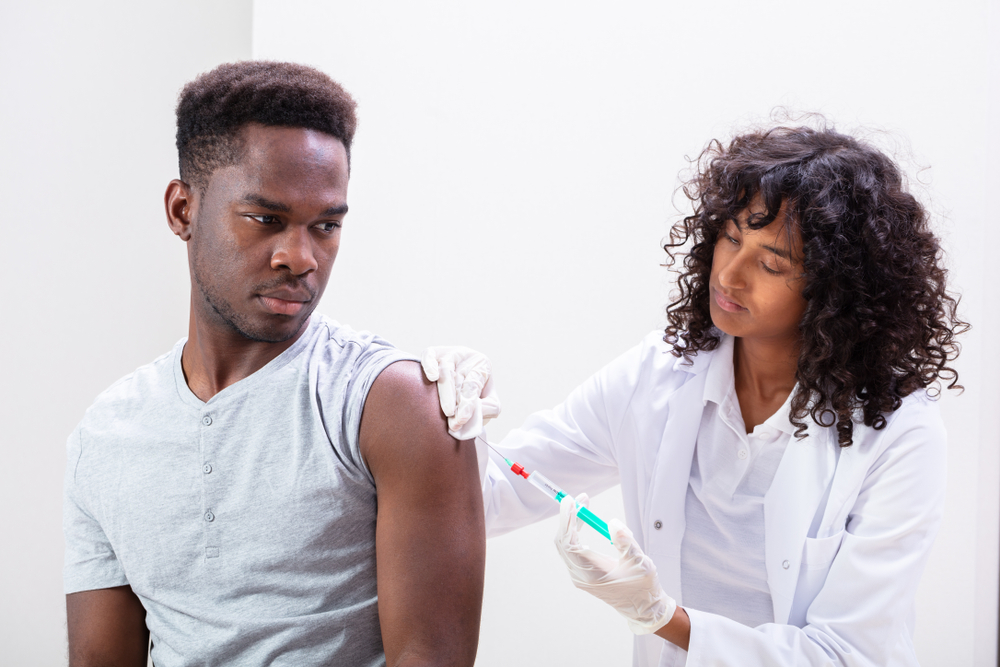The human papillomavirus (HPV) vaccine has long been a key player in reducing the risks associated with various cancers. However, recent research has further underscored its unprecedented protection rates for both males and females. This discovery has expanded the conversation surrounding HPV prevention, shifting it from a gender-specific concern to a universal health strategy. With vaccination rates climbing and protection rates soaring, the HPV vaccine is now recognized as a vital tool for cancer prevention across all genders.
Protection mechanisms
The HPV vaccine works by targeting specific strains of the HPV virus that are known to cause cancer. When administered, the vaccine activates the immune system, prompting it to produce antibodies against the virus. This immune response creates a defense mechanism that prevents HPV from infecting the body. By blocking these harmful strains, the vaccine effectively reduces the risk of HPV-related cancers, including cervical, anal, and throat cancers.
What sets the vaccine apart is its ability to protect against multiple strains of HPV simultaneously. By targeting these strains, which are responsible for the majority of HPV-related cancers, the vaccine provides a broad protective effect. This multi-strain defense offers significant benefits in reducing the overall burden of HPV-associated cancer, making the vaccine a powerful tool in long-term health management for both men and women.
Gender-specific benefits
While the HPV vaccine provides substantial protection for both men and women, research has shown that the benefits can vary depending on biological factors and patterns of HPV exposure. For women, the vaccine primarily reduces the risk of cervical cancer, which is the most well-known and dangerous cancer linked to HPV. However, the protection it provides extends to other cancers such as vulvar and vaginal cancers as well.
For men, the vaccine offers vital protection against HPV-related cancers that are less frequently discussed, such as anal and throat cancers. The vaccine’s ability to guard against these cancers is particularly crucial, as they have historically been less recognized but are becoming more prevalent. The distinct benefits for both genders highlight the importance of universal vaccination, which ensures everyone, regardless of gender, can benefit from the preventive power of the vaccine.
Demographic impact analysis
A comprehensive understanding of HPV vaccine distribution is key to ensuring maximum protection for all. Socioeconomic status, geographic location, and access to healthcare are pivotal factors that influence vaccination rates and uptake. Populations with limited access to healthcare services often experience lower vaccination rates, which can result in higher incidences of HPV-related cancers. Additionally, cultural attitudes and misconceptions can impede vaccine acceptance, leading to missed opportunities for protection.
Research has found that public health initiatives targeting underserved communities and addressing these barriers can increase vaccination rates and, in turn, decrease cancer risks. Healthcare professionals play a crucial role in educating patients about the importance of the vaccine, particularly in communities where misinformation about its safety and efficacy is prevalent. By creating accessible, culturally sensitive campaigns, healthcare providers can improve vaccination coverage and help protect populations at higher risk.
Healthcare communication
Effective communication is a cornerstone of any successful vaccination campaign. In the case of the HPV vaccine, clear, science-backed messaging is essential in dispelling myths and encouraging widespread uptake. Medical professionals and health organizations must work together to present factual, evidence-based information about the vaccine’s safety and its life-saving benefits.
In some regions, there remains a cultural stigma associated with HPV vaccines, primarily due to misconceptions about the virus’s transmission and its connection to sexual activity. This makes it imperative that healthcare providers engage in open, nonjudgmental conversations with patients, particularly in family planning or adolescent care settings. By addressing concerns and answering questions about the vaccine, providers can reassure patients and help them make informed decisions about their health.
Prevention strategies
As the scientific community continues to uncover new insights into the vaccine’s effectiveness, the focus is shifting to implementing comprehensive prevention strategies. Ensuring that vaccination programs are accessible, affordable, and inclusive is essential for broadening the reach of the HPV vaccine.
To optimize the vaccine’s impact, public health organizations are focusing on early education and widespread distribution. Schools, healthcare centers, and public health campaigns must collaborate to ensure that the vaccine is made available to all eligible individuals. While the vaccine’s effectiveness is undeniable, its true impact is dependent on its widespread adoption. Initiatives to address public misconceptions, improve accessibility, and support healthcare providers in their outreach efforts are all crucial components of a successful cancer prevention strategy.
Long-term implications and the future of HPV vaccination
Looking ahead, the HPV vaccine’s continued success in cancer prevention has the potential to reduce the incidence of HPV-related cancers significantly. With higher vaccination rates, public health experts predict that many of these cancers could become a rare occurrence in the future. The focus now is on sustaining and expanding vaccination efforts to ensure global access and eliminate disparities in healthcare.
Additionally, researchers are exploring new ways to enhance the vaccine’s effectiveness, including potential adaptations to address evolving strains of HPV. As the science of immunology advances, the HPV vaccine may become an even more powerful tool in the fight against cancer, ultimately changing the landscape of public health for generations to come.

















